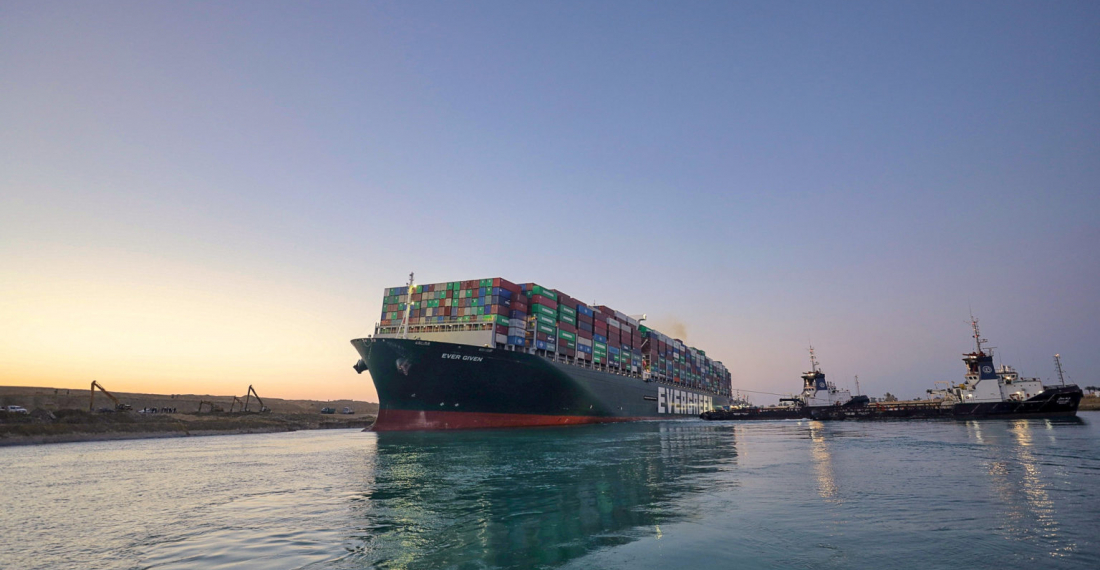The Egyptian state-owned Suez Canal Authority (SCA) may seek roughly 1 billion US dollars in compensation for the recent blockage of the Suez Canal by the containership 'Ever Given'. For six days, the ship – sailing under a Panamanian flag for a Taiwanese shipping company – blocked the most vital shipping route between Europe and Asia.
According to Bloomberg, the director of the SCA, Osama Rabie, said that the 1-billion-US-dollar estimate is based on compensation for lost toll fees, damage caused to the canal by dredging and salvaging efforts, and costs of equipment and personnel. Rabie added that the incident has also damaged the reputation of the Egyptian shipping route.
It is unclear which party would be responsible for the compensation sought by the SCA. Maritime lawyers point to the Japanese owner of the Ever Given, Shoei Kisen Kaisha Ltd.
The Taiwanese shipping company, Evergreen Marine Corp, which chartered the container ship, emphasised yesterday (1 April) that it is not responsible for the Ever Given's delayed cargo. The company does not expect to have to pay any compensation.
The Ever Given is now in the Great Bitter Lake – a body of water in the middle of the Suez Canal. Divers there are investigating to what extent the ship has suffered damage and whether it can continue its journey to its final destination, the port of Rotterdam in the Netherlands.







